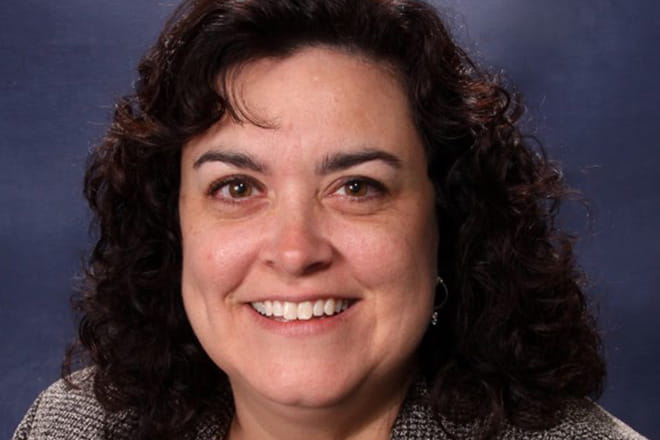Margaret Hennessy, MD, FAAP
Medical Director, Pediatrics
Chairperson, Department of Pediatrics
Ascension - All Saints, Racine, Wisconsin
I am frequently asked by the families in my clinic, “Should I get the COVID-19 vaccine for my child?” I usually say “yes” and here is why. Children are getting sick with SARS-CoV-2 (the virus that causes COVID-19). Symptoms in children can vary from a mild stuffy nose to cough, fever, and headache. Even children with mild disease can spread the infection to others. As of May 13, 2021, over 3.9 million children have tested positive for the virus that causes COVID-19. The majority of these children will recover, but some can go on to have significant complications related to the infection, including for the potential for heart disease. There have also been more than 300 deaths in children who had COVID-19.
So knowing that children can get sick with COVID-19, we look for ways to prevent the disease. We have all been using masks and keeping children separated to help limit the spread of infection. However, we now have an even better tool--vaccination. For years, we have relied on vaccination of children to prevent them from getting life-threatening illnesses, and now we can provide them with the same protection against getting COVID-19.
How do these vaccines provide protection against COVID-19? The technology used to make mRNA vaccines is not new. The concept of mRNA vaccines was first developed decades ago but has not been used in vaccines brought to market until the COVID-19 vaccine. Using this technology, vaccines can be developed quickly and produced in large quantities--a perfect combination to fight a worldwide pandemic. The vaccine takes a small piece of mRNA that can use our own cells to make a protein. Then our immune system can make antibodies to this protein. That way, if you are exposed to the infection in real life, then your body can get rid of the virus and prevent you from getting sick. The mRNA does not last long and is quickly destroyed by the body. And this mRNA cannot change our own DNA.
So how do we know these vaccines are safe? No vaccine is authorized without first studying the safety and effectiveness of the vaccine. COVID-19 vaccine is no different. The safety profile is excellent, and the CDC will continue with intense surveillance over the safety of these vaccines. Now in the U.S., over 147 million doses of the “Pfizer” vaccine have been given to adults and older teens and found to be safe and effective. For adolescents (patients aged 12-15) the vaccine was found to be 100% effective. There are always a few people who will have allergic reactions to any vaccine just like some people have allergies to foods or medications, but that risk is very small. In addition, most people with allergies do not have any problems with the COVID-19 vaccines.
So which vaccine is allowed for children? The only vaccine currently allowed for children 12 to 17 years-old is the Pfizer-BioNTech vaccine (also known as the Pfizer vaccine). The Pfizer vaccine is given in 2 doses, spaced 21 days apart. It was first granted Emergency Use Authorization (EUA) in December of 2020 after studies in over 20,000 persons. Then the EUA was expanded to include children down to age 12 years in May 2021. As of May 19, 2021, over 3.5 million persons 12 to 17 years-old have gotten at least one dose of a COVID-19 vaccine, according to the CDC. The most common side effects seen are pain at the injection site, headache, and fatigue. Some people also get fever and body aches. However, the symptoms go away in 1-2 days. The type and frequency of side effects seen in children and adolescents is similar to the types seen in young adults 18-24 years-old.
So, the bottom line is this: Children do get sick with COVID-19, and now we have a safe and effective way to protect teens against this illness. Stay tuned as we expect to see expansion of the vaccine to younger children this fall. Learn more at: healthcare.ascension.org/covid-19/covid-vaccine
This content is intended for general informational use. Any health-related information shared is not meant to provide or replace professional medical advice and does not establish a patient-provider relationship. If you are experiencing a medical emergency, call 911 or go to the nearest emergency room.
